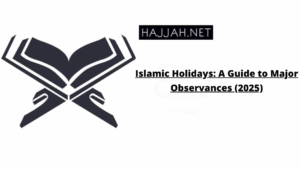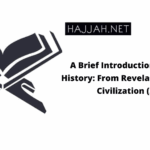Life is filled with crossroads, moments of uncertainty, and critical decisions where the path forward is unclear. In Islam, seeking Hidayah (divine guidance) is a fundamental aspect of a believer’s journey. While direct supplication (Du’a) and specific prayers like Salatul Istikhara are well-known methods for seeking direction, the consistent, heartfelt practice of Tasbeeh (glorification of Allah) and general Dhikr (remembrance) also plays a profound, albeit sometimes overlooked, role in preparing the heart to receive and recognize that guidance. This article explores how the simple act of remembrance can become a powerful tool for finding clarity and direction.
What is Tasbeeh and its Core Meaning?
Tasbeeh is the act of glorifying Allah by reciting phrases that affirm His perfection and transcendence. The most common phrase is “SubhanAllah” (سُبْحَانَ ٱللَّٰهِ), meaning “Glory be to Allah” or, more deeply, “Allah is free from all imperfections, shortcomings, or any attributes that do not befit His Majesty.”
This act is not merely a verbal exercise; it is a profound declaration that shifts the human perspective. By declaring Allah’s perfection, the believer implicitly acknowledges their own imperfection, limitations, and absolute need for His perfect wisdom and guidance.
Also Read
The Connection: How Tasbeeh Leads to Guidance
While there isn’t a single Hadith that prescribes “recite SubhanAllah X times for immediate guidance,” the connection is understood through several deep spiritual principles woven throughout the Quran and Sunnah:
- Opening the Heart to Receive Light: A heart occupied with the glorification of Allah is a heart being polished. Dhikr, including Tasbeeh, cleanses the spiritual heart (Qalb) from the rust of sins and the noise of worldly distractions. A cleaner, more purified heart is more receptive to divine light, inspiration (Ilham), and the ability to discern right from wrong. As Allah says in the Quran, “…Verily, in the remembrance of Allah do hearts find rest.” (Quran 13:28). A heart at rest is better able to perceive subtle guidance.
- A Prerequisite for Effective Du’a: The most powerful Du’as often combine praise, glorification, and the plea itself. The Dua of Prophet Yunus (AS) in the belly of the whale is a perfect example: “There is no deity except You; exalted are You (Subhanaka). Indeed, I have been of the wrongdoers.” (Quran 21:87). The act of Tasbeeh (“Subhanaka”) was a central component of this supplication that led to immense relief and guidance out of a seemingly impossible situation. Glorifying Allah before asking for guidance is a beautiful etiquette that enhances the potential for acceptance.
- Fostering Humility and Reliance (Tawakkul): When you consistently say “SubhanAllah,” you remind yourself that Allah’s plan is perfect and flawless, while your own understanding is limited and flawed. This fosters a state of humility and deepens your Tawakkul (trustful reliance on Allah). When you trust completely that His guidance is perfect, you are more likely to accept and follow it when it comes, whether through an opening in your heart, sound advice from others, or circumstances aligning in a certain way.
- Invoking Allah’s Name “Al-Hadi” (The Guide): One of Allah’s beautiful names is Al-Hadi, The Ultimate Guide. Engaging in any form of Dhikr is an act of drawing closer to Allah. By remembering Him through Tasbeeh, you are positioning yourself to receive the blessings associated with His attributes, including His attribute as The Guide. Combining general Tasbeeh with specifically invoking His name, for example by saying “Ya Hadi” (O The Guide), makes the plea for guidance more direct.
Practical Ways to Use Tasbeeh and Dhikr for Guidance
When facing confusion or seeking direction in life decisions (career, marriage, etc.):
- Establish a Consistent Routine of Dhikr: Dedicate time after your daily prayers (Salah) or before sleep to perform Tasbeeh. A well-known Sunnah is to recite Tasbeeh Fatima:
- 33 times SubhanAllah (Glory be to Allah)
- 33 times Alhamdulillah (Praise be to Allah)
- 34 times Allahu Akbar (Allah is the Greatest) This consistent remembrance keeps the heart polished and connected to Allah.
- Combine Tasbeeh with a Direct Dua for Guidance: Begin your supplication with praise and glorification, then ask for what you need. For example: “SubhanAllahi wa bihamdihi, SubhanAllahil ‘Adheem. Allahumma inni as’alukal-huda was-sadad.” (Glory be to Allah and praise be to Him, Glory be to Allah, the Magnificent. O Allah, I ask you for guidance and steadfastness.)
- Perform Salatul Istikhara (The Prayer for Guidance): This is the most direct and specific Sunnah for seeking guidance in a decision. It involves praying two voluntary rak’ahs followed by the specific Istikhara Dua, which is itself filled with glorification and acknowledgment of Allah’s perfect knowledge and power.
- Practice “Tafakkur” (Contemplation): After engaging in Dhikr, sit in quiet contemplation. Reflect on your situation, weigh the options based on Islamic principles, and pay attention to the feelings of ease or constriction in your heart. Dhikr can help clear the mental “noise,” allowing for more clarity in your contemplation.
What Tasbeeh for Guidance is Not
It’s important to understand that using Tasbeeh for guidance is not about seeking supernatural signs, specific dreams (though they can sometimes occur), or a magical answer. Rather, it is about:
- Purifying your own heart and intentions.
- Strengthening your connection with Allah.
- Asking Allah to guide your heart, mind, and circumstances towards what is best for you in this life and the next.
Guidance often comes in subtle ways: a feeling of peace about one option, obstacles being removed from one path while another becomes easier, sound advice from a pious person, or newfound clarity after a period of confusion.
Conclusion
Tasbeeh, the simple yet profound act of glorifying Allah, is a vital spiritual practice that plays a significant role in a Muslim’s quest for divine guidance. By consistently declaring Allah’s perfection through phrases like “SubhanAllah,” a believer polishes their heart, fosters humility, and strengthens their trust in Allah as Al-Hadi (The Guide). While direct supplications like the Dua of Istikhara are the primary means for seeking direction in specific matters, a heart kept moist with the remembrance and glorification of Allah is one that is best prepared to receive, recognize, and act upon the divine guidance it seeks.





